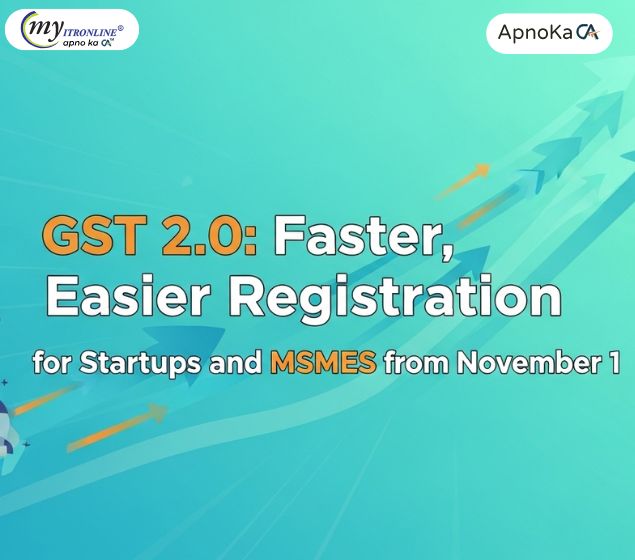# businessgrowth
8 posts in `businessgrowth` tag

Great News for Entrepreneurs! Get Your GST Number in Just 3 Days
GST 2.0 is a game-changer for small businesses in India. Starting November 1, 2025, new applicants can opt for a simplified GST registration process with automatic approval in just 3 working days. Designed for low-risk businesses, this reform reduces hassle and speeds up business launch.

GST 2.0: Faster, Easier Registration for Startups and MSMEs from November 1
From November 1, 2025, small businesses and startups in India can benefit from a simplified GST registration process. This reform promises approval within 3 working days for low-risk applicants and public sector entities. It’s part of the broader GST 2.0 initiative aimed at making tax compliance faster, easier, and more tech-driven. Learn how this change can help you start your business with less hassle and more confidence.

CBIC Announces 90% Quick Refund for Businesses A Major Relief
The CBIC has rolled out a provisional refund mechanism allowing eligible businesses to receive 90% of their GST refunds upfront from October 1, 2025. This move targets industries facing cash flow issues due to inverted duty structures and aims to accelerate business operations and growth.
.jpg)
Union Budget 2025: New GST Rules, ITC Changes & MSME Benefits
Significant GST reforms were implemented in the Union Budget 2025, with an emphasis on increasing transparency, reducing the tax burden on small enterprises, and boosting compliance. Stricter ITC claim regulations, e-invoicing requirements for companies with ₹5 crore in revenue, updated GST rates, and higher GST registration limits for MSMEs are some of the major changes. Although companies must adjust to more stringent laws, these changes seek to simplify compliance, increase economic growth, and streamline procedures.
.png)
The Income Tax Act's Section 35AB: A Comprehensive Guide for Businesses
This blog post provides a detailed guide to Section 35AB of the Income Tax Act, which offers tax deductions for capital expenditures on acquiring know-how. It covers the benefits, requirements, and advantages of this provision, making it a valuable resource for businesses looking to invest in innovation and growth.

The Income Tax Act's Sections 115BAB and 115BAA
The Income Tax Act's Sections 115BAB and 115BAA, which are intended to give domestic Indian businesses tax advantages, are thoroughly examined in this blog. While Section 115BAA gives existing domestic companies a lower tax rate to improve competitiveness and simplify the tax system, Section 115BAB targets new manufacturing companies with a reduced tax rate to encourage industrial expansion. In order to assist businesses in selecting the section that best meets their needs, the blog provides a comparative study of the salient characteristics, eligibility requirements, benefits, and compliance requirements of each section. Comprehending these provisions can result in noteworthy tax benefits and enhance the financial well-being and expansion of Indian enterprises.

Maximizing Tax Benefits: How to Claim Deductions Under Section 10AA of the Income Tax Act
Section 10AA of the Income Tax Act provides substantial tax deductions for units operating in Special Economic Zones (SEZs). This blog details the eligibility criteria, steps to compute the deduction, and the necessary compliance requirements for claiming these tax benefits. It covers the phased deduction structure, documentation needed, and the overall benefits of leveraging Section 10AA. Perfect for business owners and professionals looking to optimize their tax liabilities while promoting export-oriented growth.
.png)
Maximizing Your Business's Bottom Line: 5 Tax-Saving Strategies for Small Businesses in India
Small businesses in India face many challenges, including high taxes and complex regulations. However, there are several tax-saving strategies that small businesses can use to reduce their tax liability and improve their bottom line. In this blog post, we will discuss the top 5 tax-saving strategies for small businesses in India. We will explore how small businesses can take advantage of tax deductions, investments, and other strategies to reduce their tax burden and increase their cash flow. By implementing these strategies, small businesses can improve their financial health and achieve long-term success.
